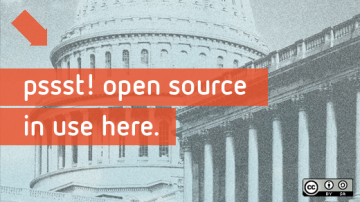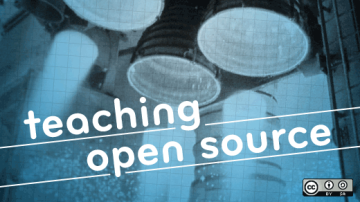
Luis Ibáñez works as Senior Software Engineer at Google Inc in Chicago. Opinions expressed in this site are his own.You can find him in github at: http://www.github.com/luisibanezand in twitter at: http://www.twitter.com/luisibanezHe previously worked as a Technical Leader at Kitware Inc., and Director of Open Source Community Development at the Open Source EHR Agent (OSEHRA). At Kitware he was closely involved in the development of open source software for medical imaging applications, in particular, working with the Insight Toolkit (ITK).Luis is a strong supporter of Open Access, and one of the editors of the Insight Journal, an OA Journal that enforces the verification of reproducibility. In collaboration with other instructors, Luis taught a course on Open Source Software Practices at RPI between 2007 and 2013, and also at the State University of New York at Albany between 2011 and 2014.Luis Ibáñez received a B.S. in Physics from the Universidad Industrial de Santander (Bucaramanga, Colombia) in 1989 and a M.S. in Optics from the same university in 1994. He received a D.E.A and Ph.D. degrees from the Universite de Rennes I (Rennes, France) in 1995 and 2000, respectively. In 1999, Luis Ibáñez joined the Division of Neurosurgery of the University of North Carolina at Chapel Hill and participated as a member of the MIDAG and CADDLab groups. His work at UNC was related to the development of algorithms for 2 and 3D registration applied to image guided surgery. He also participated as developer of the INSIGHT Registration and Segmentation Toolkit sponsored by the National Library of Medicine. Luis Ibáñez joined Kitware, Inc. in February 2002 where he was one of the main developers of the Insight Toolkit (ITK) coordinating its maintenance with other developers and the user community; he is also one of the main developers of the Image Guided Surgery Toolkit (IGSTK) and participated in crafting the operational principles of the Insight Journal. Luis Ibáñez is a strong supporter of Open Access, and the verification of reproducibility in scientific publications and is a regular speaker in ITK training courses, and in events disseminating the principles of Open Source. In August 2014, Luis joined Google Inc as Software Engineer, to work with the corporate engineering team in New York city.







Authored Comments
Karl,
Thanks for pointing this out.
Here is the link to the world bank data, for completeness
http://data.worldbank.org/indicator/SH.XPD.TOTL.ZS?order=wbapi_data_val…
Chris, Mark,
Thanks for the great article.
It is very interesting to see the interplay between open source and the democratization of cloud services, and I'm looking forward to learn more at All Things Open.
I would like to comment on a tangent topic, reacting to the statement:
"Companies exist to make a profit"
I hear this often and feel compelled to point it out as a misconception.
The purpose of companies is not to make profits, just as the purpose of people is not to make a salary. Profits, just as salaries, are nice things to have, but they are not a purpose.
Companies ought to have a Mission and a Business Purpose. It is because of that Purpose that they get endowed with the equivalent legal rights of citizens (through incorporation: https://en.wikipedia.org/wiki/Corporate_personhood).
Companies purposes are typically to provide services or develop products that are needed by their customers. Generating revenue is part of the mechanics of pursuing that purpose. Having profits is a nice and healthy condition for a company to be in, but it is not its purpose.
That specific view of "profits as a goal", probably makes sense from the perspective of fleeting investors; and even then, it is not that black and white, since it is actually balanced with the level of risk-taking involved in pursuing a certain level of profits (investing in conservative ways, rather than high-risk / high-return conditions ), as well as with intangibles such as good will and reputation. In other words, even investment is not just about the profits.
It is a refreshing exercise to look back at the mission statement of companies around us, to regain perspective on what their respective purposes are.